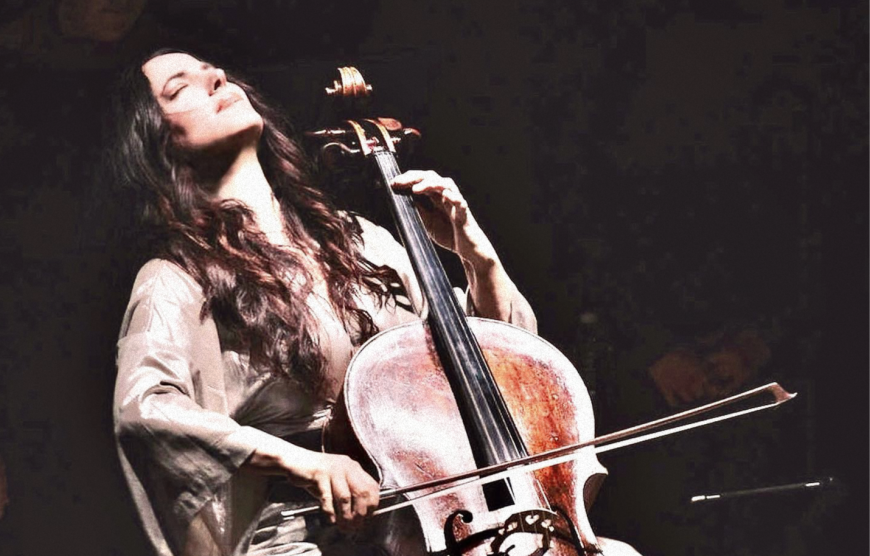
Cellist Maya Beiser's new solo album Salt is a candid, eclectic exploration of pain, shame, and memory, presented largely from a woman's perspective — something still rare in a traditionally male-dominated classical music world despite growing awareness and efforts to increase representation.
Salt, which released on Aug. 1, opens with a mini-opera of the same name by composer Missy Mazzoli, who wrote the piece for Beiser and vocalist Helga Davis in 2012. Mazzoli’s mini-opera is inspired by the biblical tale of Lot’s wife who was turned into a pillar of salt for disobeying heavenly orders. In an interview with NPR earlier this summer, Beiser said the myth haunted her since she learned it as a child.
This centerpiece of the album restores agency to an unnamed woman who, from Beiser’s perspective, pays an unjust price for her defiant refusal to turn away from the burning city of Sodom as her family evacuates. Set to playwright and screenwriter Erin Cressida-Wilson’s haunting libretto, Davis delivers a hypnotic vocal performance alongside Beiser’s fierce-yet-sensitive playing.

The newest work on the album is Clarice Jensen’s composition “Salt Air, Salt Earth.” The piece, Jensen’s first commission for a fellow cellist, also takes inspiration from the story of Lot’s wife, as well as the ancient ritual of “salting the earth” of a conquered city. It opens with a low, steady pulse and a C-major chord that emerges from thin air. Long tones, ambient loops, and warm cello melodies wash ashore, lulling listeners into a trancelike state.
Jensen used the 3D structure of NaCl, the chemical formula of table salt, as a visual guide while composing the score. At 15 and a half minutes, it’s the album’s longest track, but it never seems to drag. Cliché as it may be to say a piece of ambient music can suspend or stretch time, it rings true; one could easily imagine the piece as the soundtrack to a mesmerizing planetarium show.
The tracklist also includes pieces about women composed by men for other ensembles, but arranged or “reimagined” by Beiser for multi-track cello. One such work is “Lamento d’Arianna” from Claudio Monteverdi’s mostly lost opera L’Arianna, in which Ariadne awakes to find that Theseus has abandoned her on the island of Naxos after she helped him escape the labyrinth. Another is “When I am Laid in Earth,” also known as Dido’s Lament from Purcell’s tragic opera Dido and Aeneas, in which the Trojan hero Aeneas abandons his lover Dido, the Queen of Carthage.

Other ancient female characters from tragic stories make appearances on the album, too: There’s a lament to Phaedra, daughter of King Minos and wife of the ancient Greek hero Theseus, who fell in love with her stepson and died of suicide. And who could forget the tale of Orpheus and Eurydice, whose fateful glance back cost him his bride? Beiser said in an interview with The Strad that her goal was to reimagine the famous aria in C.W. Gluck’s opera Orfeo ed Euridice from Eurydice’s perspective.
Salt thrives in its ability to pull together music across centuries, revealing universal themes of memory and longing. For skeptics of the avant-garde, the roughly 80-minute album might serve as an approachable entry point into the world of experimental music.




